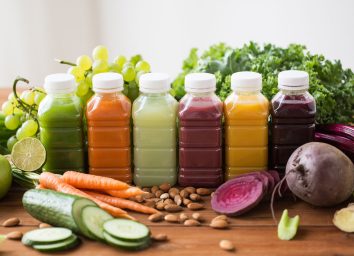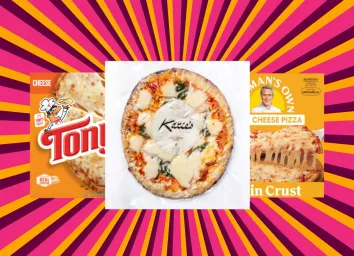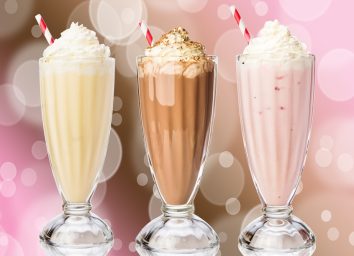The 13 Best and Worst Foods for Runners
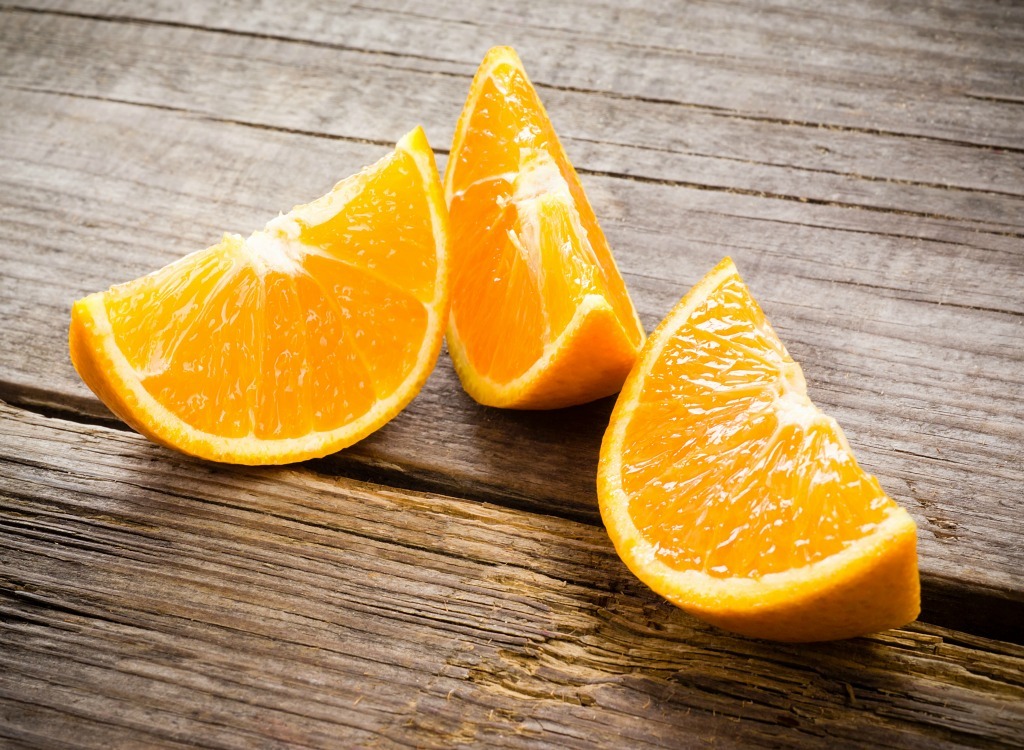
Whether you’re training for your third marathon or just starting your first couch-to-5K program, the gateway to your success lies on your plate. But, unfortunately, identifying the right fuel for your weekly runs isn’t exactly simple. That’s because not all healthy, flat belly foods provide the nutrients your muscles need to power through your workouts—especially if you’re running for more than 30 minutes at a time.
To help you fend off dehydration, boost your endurance and speed, and feel your best during every workout, we’ve scoured the top scientific journals for the best and worst running fuel in the supermarket. Read on to discover which foods are jam-packed with the nutrients, minerals and antioxidants your body needs to finish every sprint strong—and which ones will make every step feel all the more challenging. And once you see how easy it is to fuel your body right, be sure to check out the essential list of the 5 Best-Ever Foods for Abs—Guaranteed—it can help you get a washboard stomach in just five weeks!
ALMONDS VS. PUMPKIN SEEDS
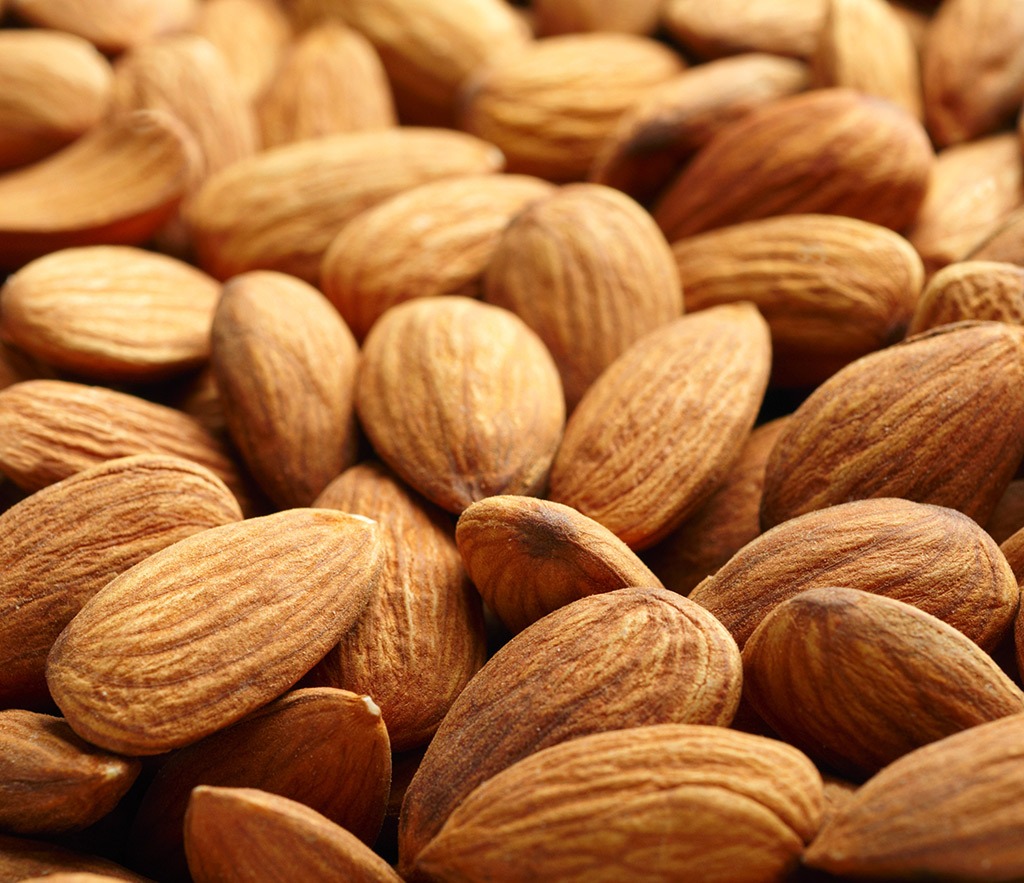
EAT THIS: Almonds
NOT THAT!: Pumpkin seeds
Sure, almonds are filled with healthy fats and flavonoids that protect your heart and fight inflammation, but that’s not all they can do for runners: The tear-shaped nut is a potent source of magnesium, an energy and endurance-boosting mineral that’s lost through sweat. And since running can leave you drenched in the stuff, athletes (yes, that means you!) have an increased need for magnesium compared to the general population, according to a Magnesium Research study. If you don’t replace the magnesium lost through exercise, you can impair your exercise performance and power. And since the mineral can reduce the accumulation of lactic acid, not getting enough of the stuff can leave your muscles feeling extra sore. Grab a quarter cup of almonds (which contains a quarter of your DV of magnesium) over pumpkin seeds—their high phosphate content reduces the availability of magnesium.
OMEGA-3 ENRICHED EGGS VS. STANDARD EGGS
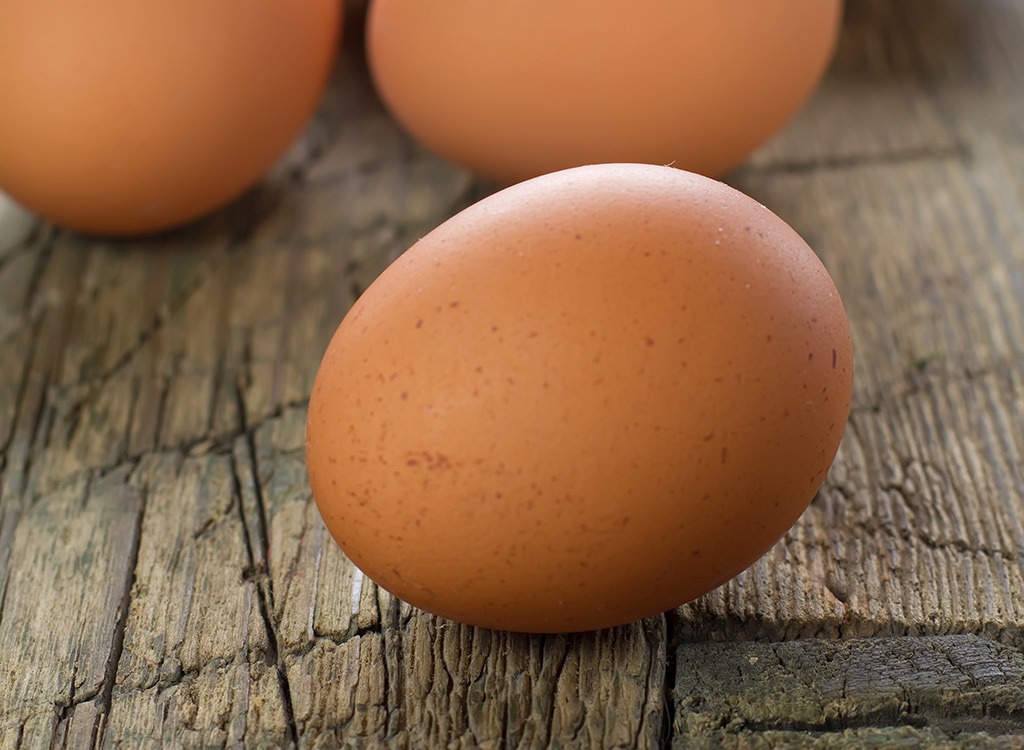
EAT THIS: Omega-3 enriched eggs
NOT THAT!: Conventional eggs
Trying to crack your PR? Crack open an egg! According to a International Journal of Sports Medicine, distance running depletes levels of choline, a nutrient that helps the body build the neurotransmitters necessary for good muscle control and endurance. Although conventional eggs yolks are one of the best sources of choline in the supermarket, runners should consider buying the omega-3 enriched variety to ensure they’re consuming enough of the nutrient to go the distance. Still not convinced you should shell out the extra cash? Omega-3s also boost immunity, quiet inflammation, and protect against diseases such as Alzheimer’s and cancer.
ORANGES VS. APPLES

EAT THIS: Oranges
NOT THAT!: Apples
If you switch your apple-a-day to an orange-a-day, you may experience less muscle soreness after your run. Why? According to a study in the International Journal of Sport Nutrition and Exercise Metabolism, consuming vitamin C before a workout can reduce muscle soreness and prevent the formation of free radicals. A single orange supplies 116 percent of your DV for vitamin C while an apple only provides 14 percent. A bonus: Oranges are a great source of selenium, a trace element whose antioxidant power maintains thyroid function, fights fatigue and boosts metabolism.
LOW-FAT YOGURT VS. GREEK YOGURT
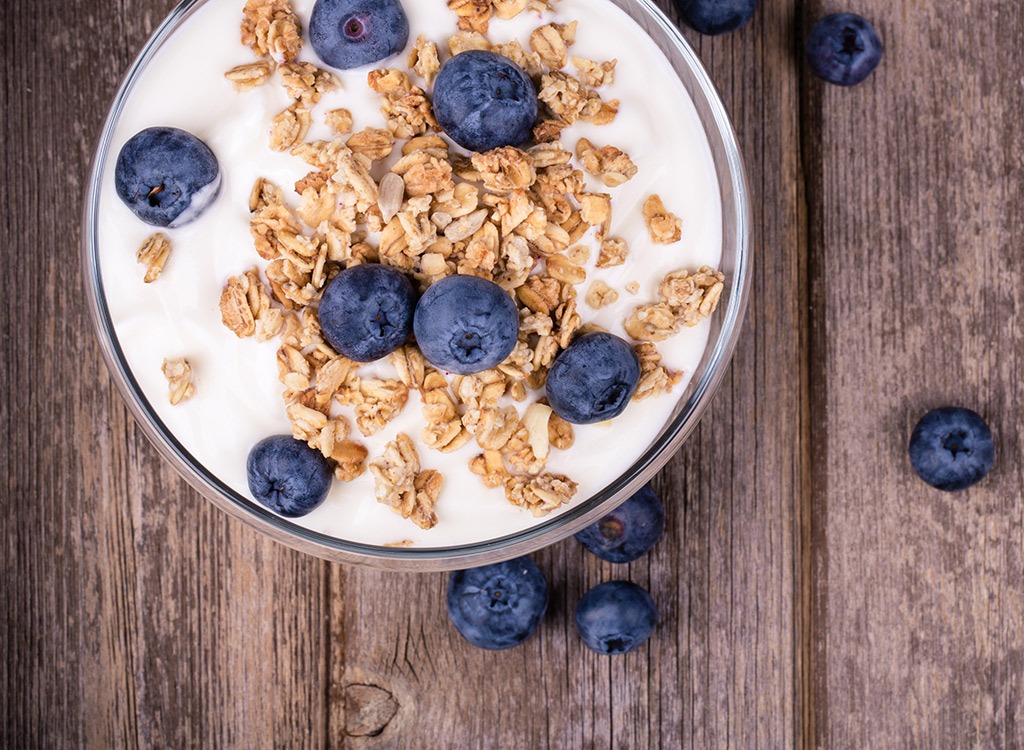
EAT THIS: Low-fat Yogurt
NOT THAT!: Greek Yogurt
High-impact exercise like running helps improve bone density through prompting bones to add mass to counter stress, but calcium and vitamin D (the nutrient that helps your body absorb calcium) are essential parts of the equation, and runners tend to not get enough of them. A study in Physical Medicine and Rehabilitation Clinics of North America found that over 20 percent of runners will get bone stress injuries (like stress fractures) annually. The reason? Nutritional deficiencies in calcium and vitamin D increase your risk for these types of injuries.
Luckily, another study in the American Academy of Physical Medicine and Rehabilitation found that in young female runners, higher intakes of calcium, skim milk, and dairy products were associated with lower rates of stress fractures. One cup of low-fat yogurt, like Stonyfield Smooth and Creamy Organic Lowfat Yogurt, contains over a third of your recommended daily intake of calcium and a quarter of your RDI of vitamin D. On the other hand, the same size cup of low-fat Greek yogurt only has a quarter of your RDI of calcium and no vitamin D.
LOWFAT CHOCOLATE MILK VS. LOWFAT MILK
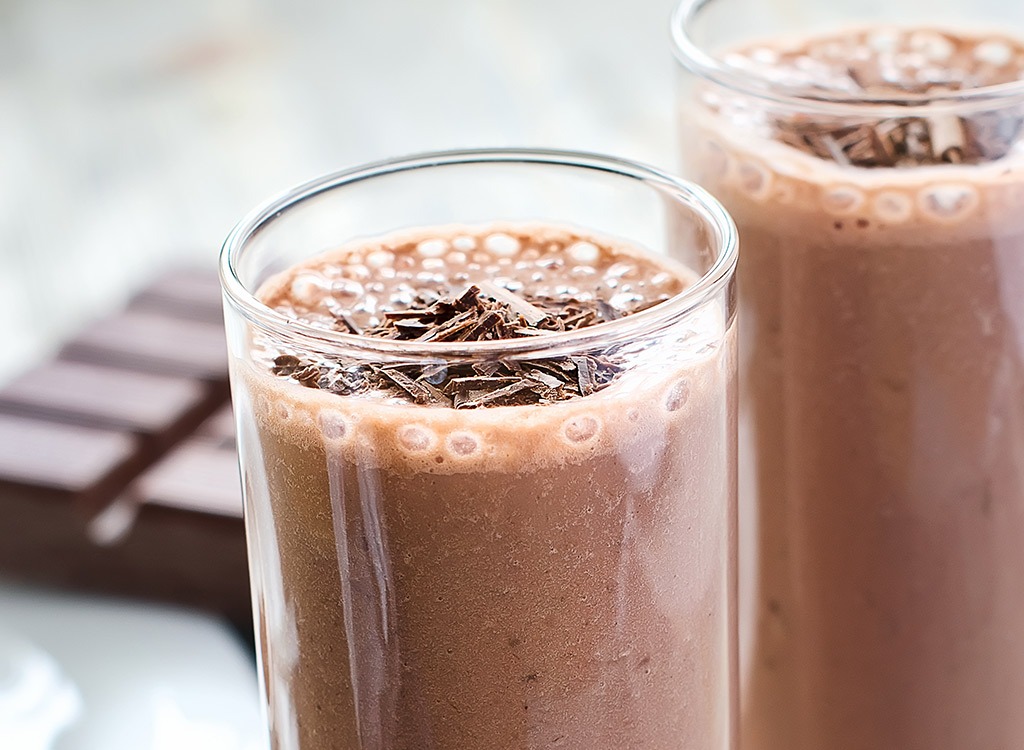
EAT THIS: Lowfat Chocolate Milk
NOT THAT!: Lowfat Milk
Even though this drink is found on the kid’s menu, it’s one of the best recovery snacks for runners. A study published in The International Journal of Sport Nutrition and Exercise Metabolism, found that subjects given chocolate milk during recovery time between periods of riding stationary bikes were able to pedal 49 percent longer than cyclists given another carb-replacement beverage. Chocolate milk’s naturally occurring electrolytes keep you hydrated, and its sweetness speeds energy into muscles to help you refuel.
Also of note, better performance is correlated with higher amounts of stored glycogen in skeletal muscles, an energy source that typically decreases during intense endurance exercises like running. Research in the Journal of Applied Physiology found that ingesting protein along with carbohydrates at a carb-to-protein ratio of 4:1 can replace these muscle glycogen stores faster and improve endurance performance over just carbohydrate ingestion alone. Turns out, 12 ounces of low-fat chocolate milk has a ratio of 3.9:1, while plain old 1% milk is only 1.5:1.
BANANAS VS. BANANA PUDDING
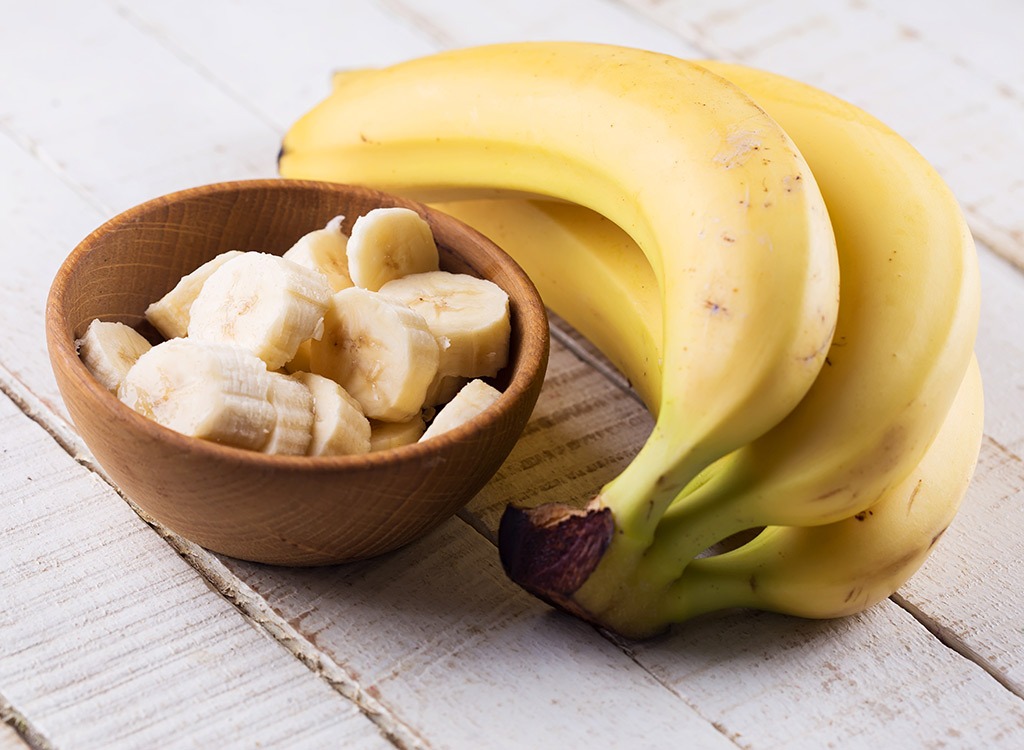
EAT THIS: Bananas
NOT THAT!: Banana Pudding
Bananas are an ideal source of fuel. Fat- and sugar-laden banana pudding? Not so much. In it’s purest form, nanners are rich in glucose, a highly digestible sugar, which provides quick energy, and their high potassium content helps prevent muscle cramping during your workout. Each medium banana contains about 36 grams of good carbs: Their low glycemic index means carbs are slowly released into your body, preventing sugar crashes and spurring the process of muscle recovery. They’re also high in cramp-fighting potassium, a mineral that’s lost through sweat during exercise. Still not convinced you should nosh on a nanner? Then check out these 7 Amazing Things Bananas Do to Your Body!
Blueberries VS. Blueberry Jam
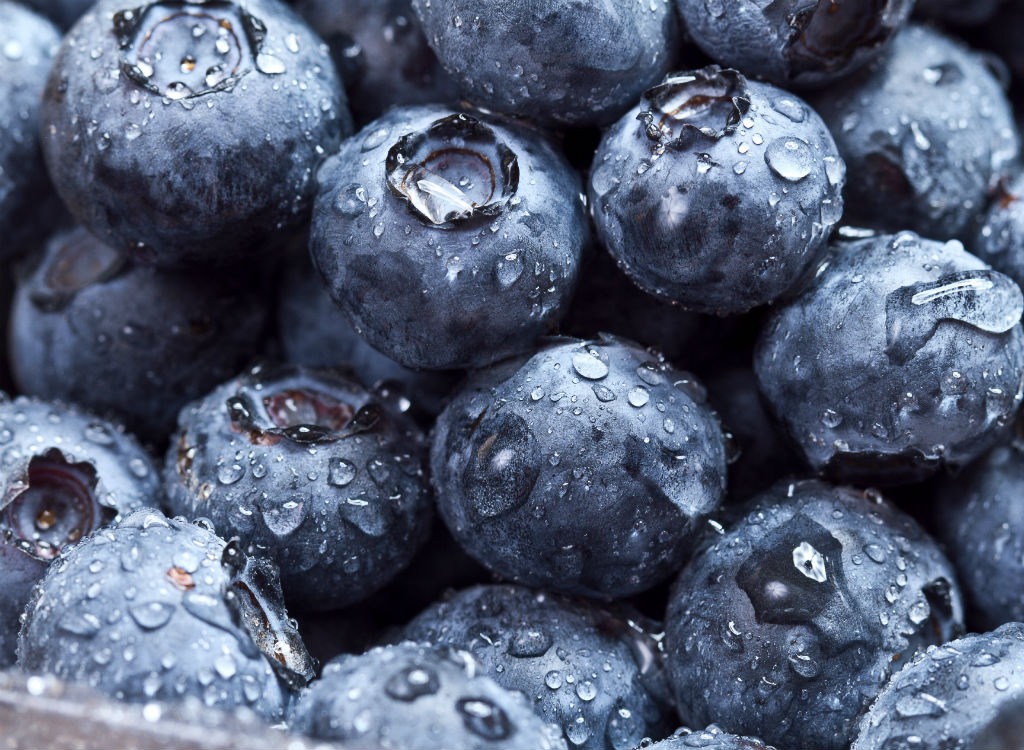
EAT THIS: Blueberries
NOT THAT!: Blueberry Jam
Researchers from the North Carolina Research Campus found that when long-distance runners were given a soy protein supplement infused with polyphenols from blueberries, their fat oxidation and gut permeability (i.e. the ability to allow even more antioxidant and anti-inflammatory polyphenols into the body) increased post exercise. Even better, after exercising, runners in the treatment group showed a spike in their metabolism that lasted over 14 hours, while the placebo group went back to normal levels over the same time. When it comes to the metabolic benefits of blueberries, stick with the fresh stuff. Blueberries that have been sweetened in jams contain almost three times more sugar than fresh blueberries, a dietary toxin that has been linked to slowed metabolism and belly fat.
WILD SALMON VS. FARMED SALMON

EAT THIS: Wild Salmon
NOT THAT!: Farmed Salmon
Salmon is the king of fish, especially when it comes to nutrition for runners. Besides being an excellent source of high-quality protein, salmon is one of the best food sources of omega-3 fatty acids. These essential fats can help reduce inflammation after a run, which can ultimately improve tissue repair and reduce muscle pain. And for runners who suffer from exercise-induced asthma, omega-3s can help with that too. A study in the Journal of Asthma found that the anti-inflammatory properties of omega-3s were able to suppress exercise-induced asthma symptoms in athletes who had taken fish oil supplements for three weeks. Before you head to the store, be sure you go wild (we’re talking about the type of fish, of course). Farmed salmon is plumped up with fishmeal and high in dangerous PCBs, dangerous chemicals that trick your body into holding on to fat and play with our male/female hormones.
PORTOBELLO MUSHROOMS VS. WHITE MUSHROOMS
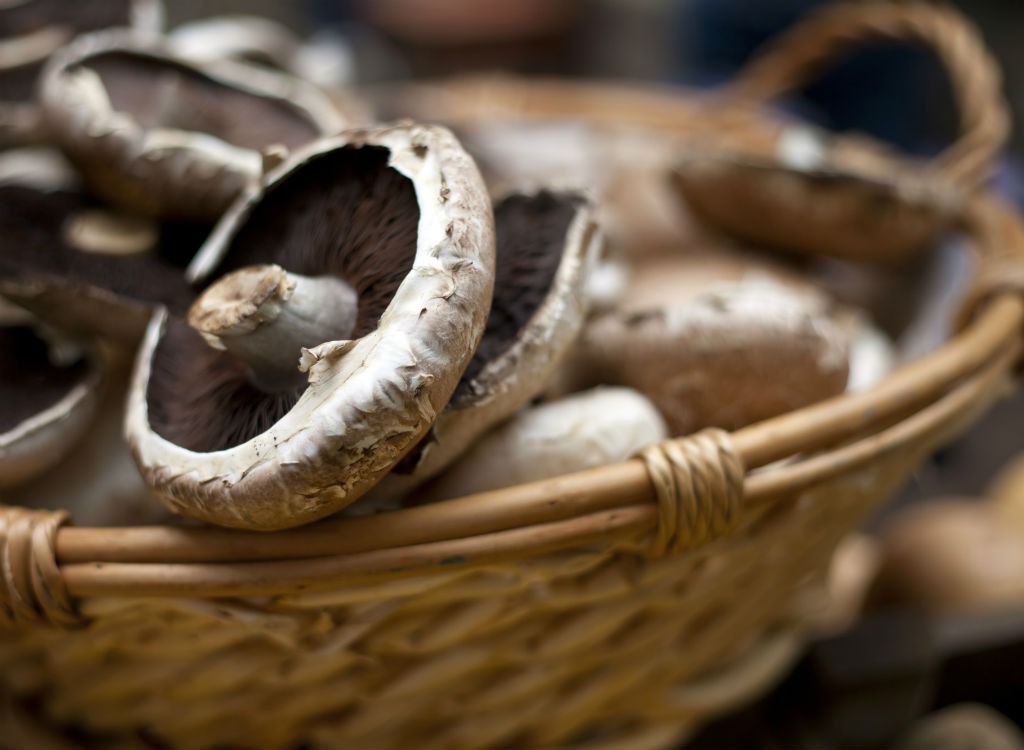
EAT THIS: Portobella mushrooms
NOT THAT!: White mushrooms
Vitamin D has many biological functions beyond its classical role in bone metabolism, one of which is regulating your immune system. A study in the Journal of Sports Medicine found that when vitamin D concentrations were low in a group of male and female runners, they had a biomarker for increased inflammation. This pro-inflammatory biomarker has previously been implicated in delaying the regeneration of fibers in injured muscle cells. As a common issue with runners, low vitamin D levels can increase your risk for inflammation-related muscle injury. Turns out, mushrooms are a great source of vitamin D—but only certain kinds. A cup of sliced portobello mushrooms contains over 160 percent of your DV of vitamin D while the same cup of white mushrooms contains less than 1. Not getting enough vitamin D is one of the 30 Flat-Belly Mistakes Women Make. Don’t miss the other 29!
WHOLE-GRAIN PASTA VS. WHITE PASTA
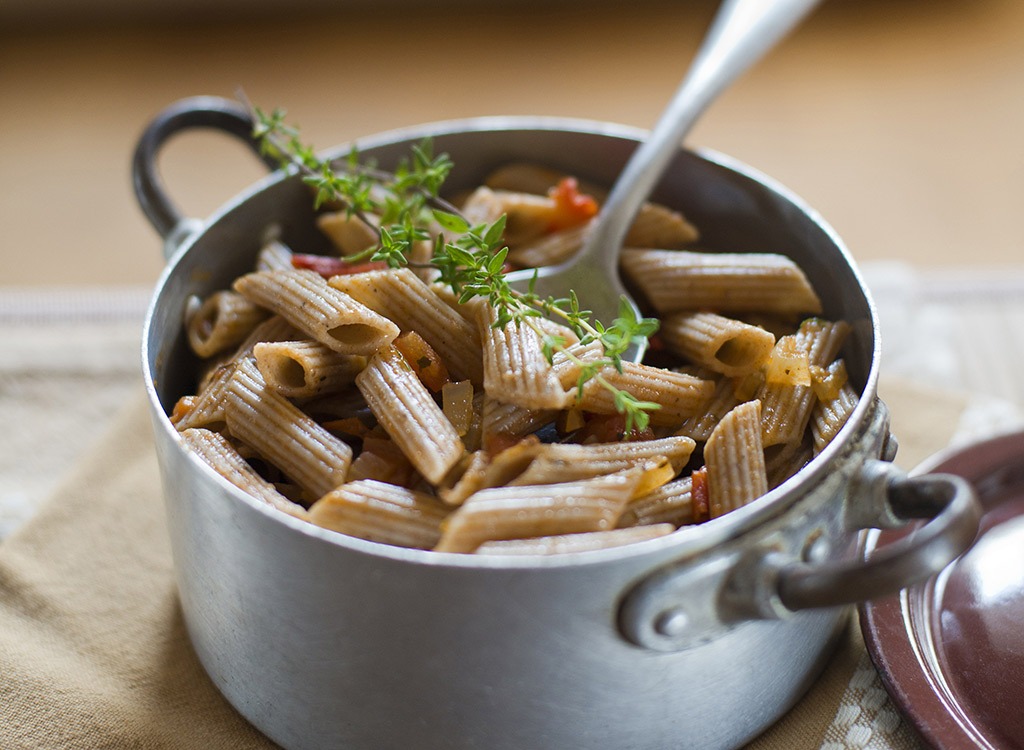
EAT THIS: Whole-grain Pasta
NOT THAT!: White Flour Pasta
Pasta and runners will forever be BFFs because pasta provides your body with much-needed, easily-digestible carbs that help replenish spent glycogen (energy) stores. When it comes to which pasta to pick, research from the Journal of Sports Sciences found that you should choose nutrient-rich carbohydrate foods after your run because these extra nutrients may assist in other recovery processes and, in the case of protein, may promote additional glycogen recovery. Choose a whole-grain version over refined pasta for your next post-workout meal for its high fiber content to help to fill you up and extra B vitamins for energy metabolism. Obsessed with pasta? Get the 40 Ultimate Pasta Tips to Stay Fit!
GREEN TEA VS. SPORTS DRINKS
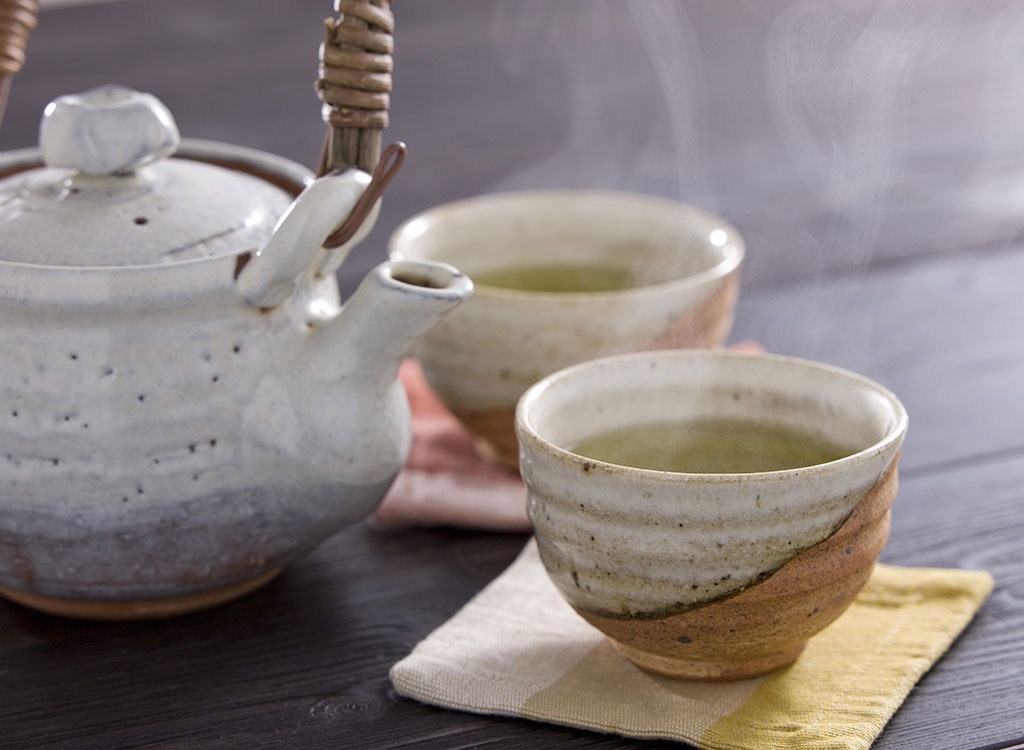
DRINK THIS: Green tea
NOT THAT!: Sports drinks
Fluid consumption is essential for everyone, but even more so for people headed out on runs over 30 minutes, as dehydration is one of the most likely contributors to fatigue. So when you’re thinking about hydrating, grab a cup of antioxidant-rich green tea over sans-antioxidants sports drinks. Antioxidants, like the catechins found in green tea, neutralize the increased concentration of DNA-damaging, cancer-causing free radicals that form in our bodies after a workout. Even better? Green tea can help increase endurance as well as your muscles’ capacity for fat burning, according to a study in American Journal of Physiology.
GRASS-FED BEEF VS. GRAIN-FED BEEF
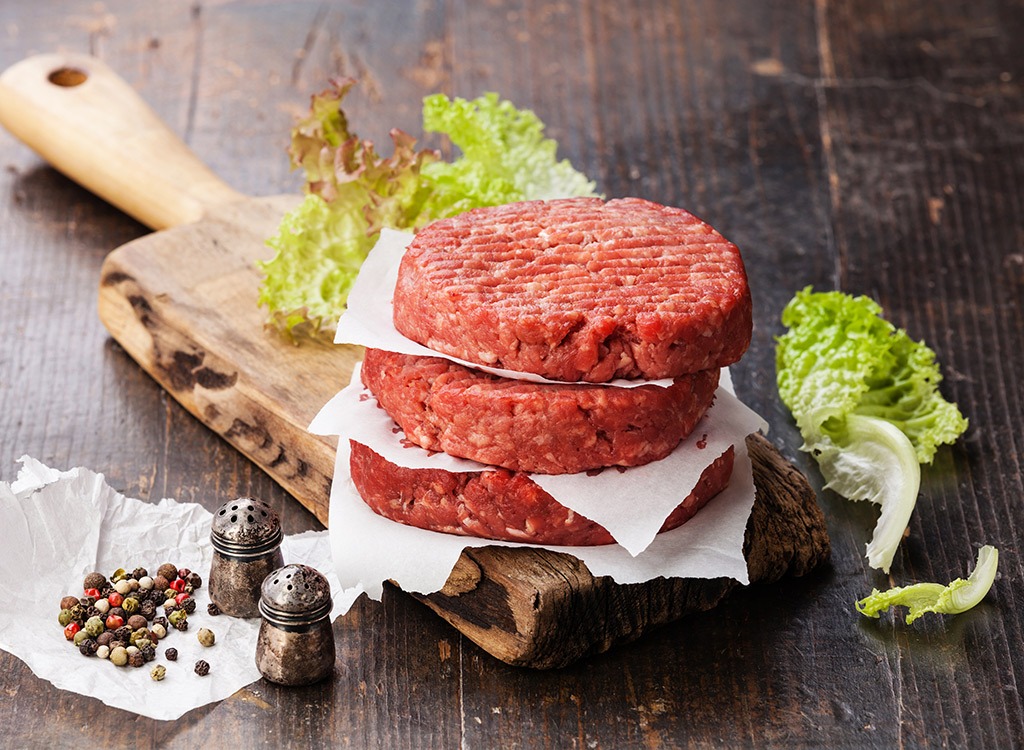
EAT THIS: Grass-fed Beef
NOT THAT!: Conventional grain-fed Beef
Muscle-building iron performs a vital role in transporting oxygen in your blood and muscles. Runners may be at particular risk of fatigue-inducing iron deficiencies due to their bodies’ reduced iron absorption brought on by exercise-induced inflammation. Grass-fed beef is the perfect solution: it’s rich in conjugated linoleic acid (CLA), an anti-inflammatory fatty acid, and it provides your body with heme iron, the form of iron more readily absorbed by your body compared to nonheme iron found in spinach or iron-enriched foods. To reap all the benefits of this beef, opt for grass-fed over the conventional grain-fed beef. Grass-fed beef contains up to 5 times as much omega-3 fatty acids as corn fed and contains twice as much CLA. It also contains up to ten times the amount of immunity-boosting vitamin E, which also acts as a powerful anti-inflammatory antioxidant in the face of free radicals.
STEEL-CUT OATMEAL VS. SUGARY CEREAL

EAT THIS: Steel-cut oatmeal
NOT THAT!: Sugary cereal
Oatmeal is a high-fiber, low-glycemic (the measure of how quickly food raises your blood glucose levels) food, which, according to a study in the International Journal of Sports Nutrition and Exercise Metabolism, is the perfect type of meal to eat before running to improve your endurance. The study determined that people who ate a low-glycemic meal like oatmeal three hours before a run had over a 7 percent increase in time to exhaustion compared to those who consumed a high-glycemic meal such as sugary cereal. While that doesn’t seem like a lot, in running terms, that could mean adding an extra mile to your workout.
